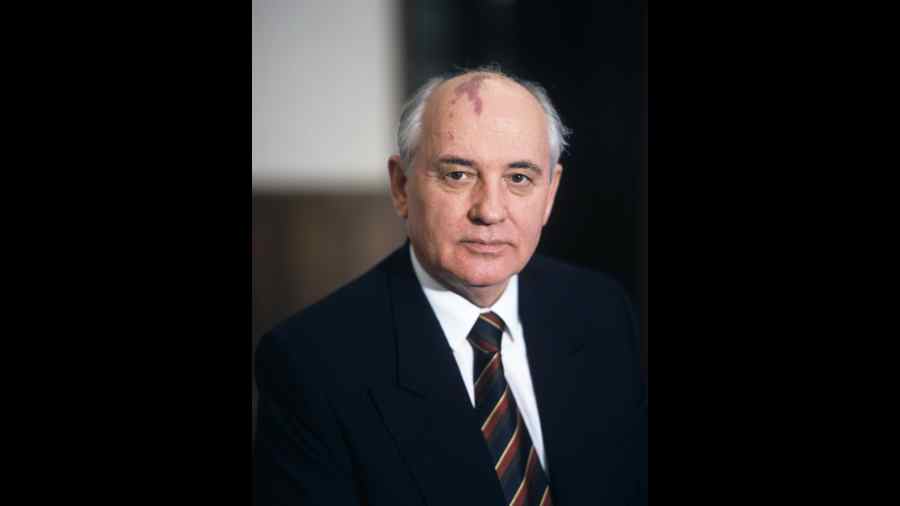For all the adulation he inspired in the West, Mikhail Gorbachev was a tragic figure who failed in the historic mission he had defined for his own country. The award of the 1990 Nobel Peace Prize marked the pinnacle of world acclaim for the role that Gorbachev, then Soviet President, had played in ending the Cold War without bloodshed.
But at home, he was a drained and defeated man when forced to step down the following year, reduced to the leader of a non-existent country as the Union of Soviet Socialist Republics collapsed into 15 separate states.
Gorbachev, who died on Tuesday, had set out to revitalise the moribund Communist system and shape a new union based on a more equal partnership between the 15 republics, of which the two most powerful were Russia and Ukraine.
Yet in the space of six years, both Communism and the Union came crashing down. In hindsight, some of his mistakes are clear to see. He attempted political and economic reforms simultaneously and on too ambitious a scale, unleashing forces he could not control. It was a lesson not lost on China’s leaders, who embraced the market economy but served notice with the 1989 killings of protesters on Tiananmen Square that they would act ruthlessly.
Gorbachev never stood for election to earn himself a popular mandate — unlike his great rival Boris Yeltsin. And he failed to anticipate the strength of nationalist feeling — initially in the Baltic republics of Latvia, Lithuania and Estonia, and spreading to others like Georgia and Ukraine — that would create unstoppable momentum to escape Moscow’s grip. ”He didn’t believe that the Soviet Union was actually an empire in itself of nations that did not want to be shackled,” said Jonathan Eyal of the Royal United Services Institute.
“Like all Soviet leaders, and dare I say like Russian leaders today, he saw the Soviet Union as synonymous with Russia and he simply could not understand why nations wanted to be independent.” ”I think the seed of his downfall was that essentially he didn’t really understand the Soviet Union, Soviet society and how it worked,” said Alexander Titov, lecturer in history at Queen’s University Belfast.

